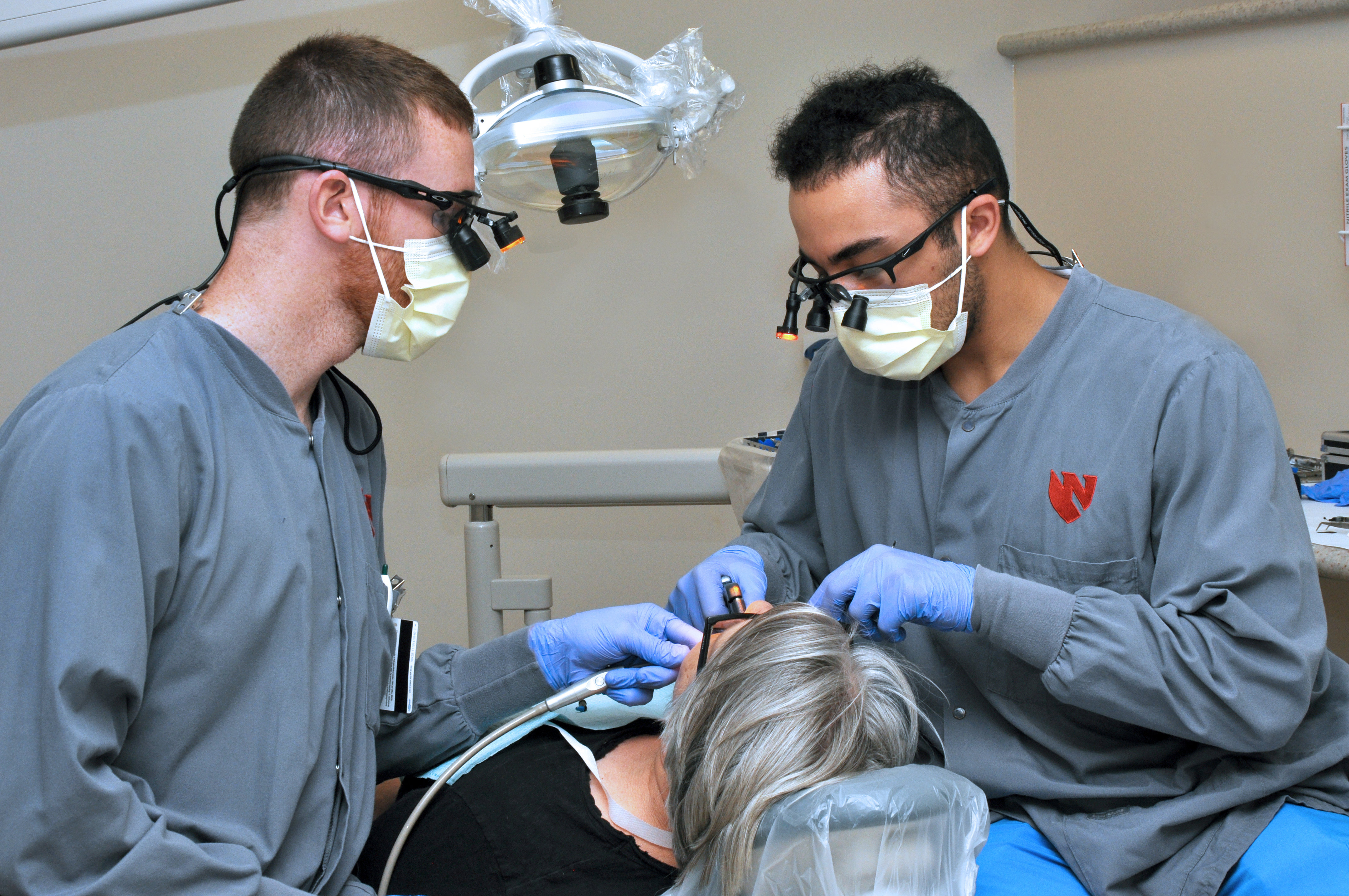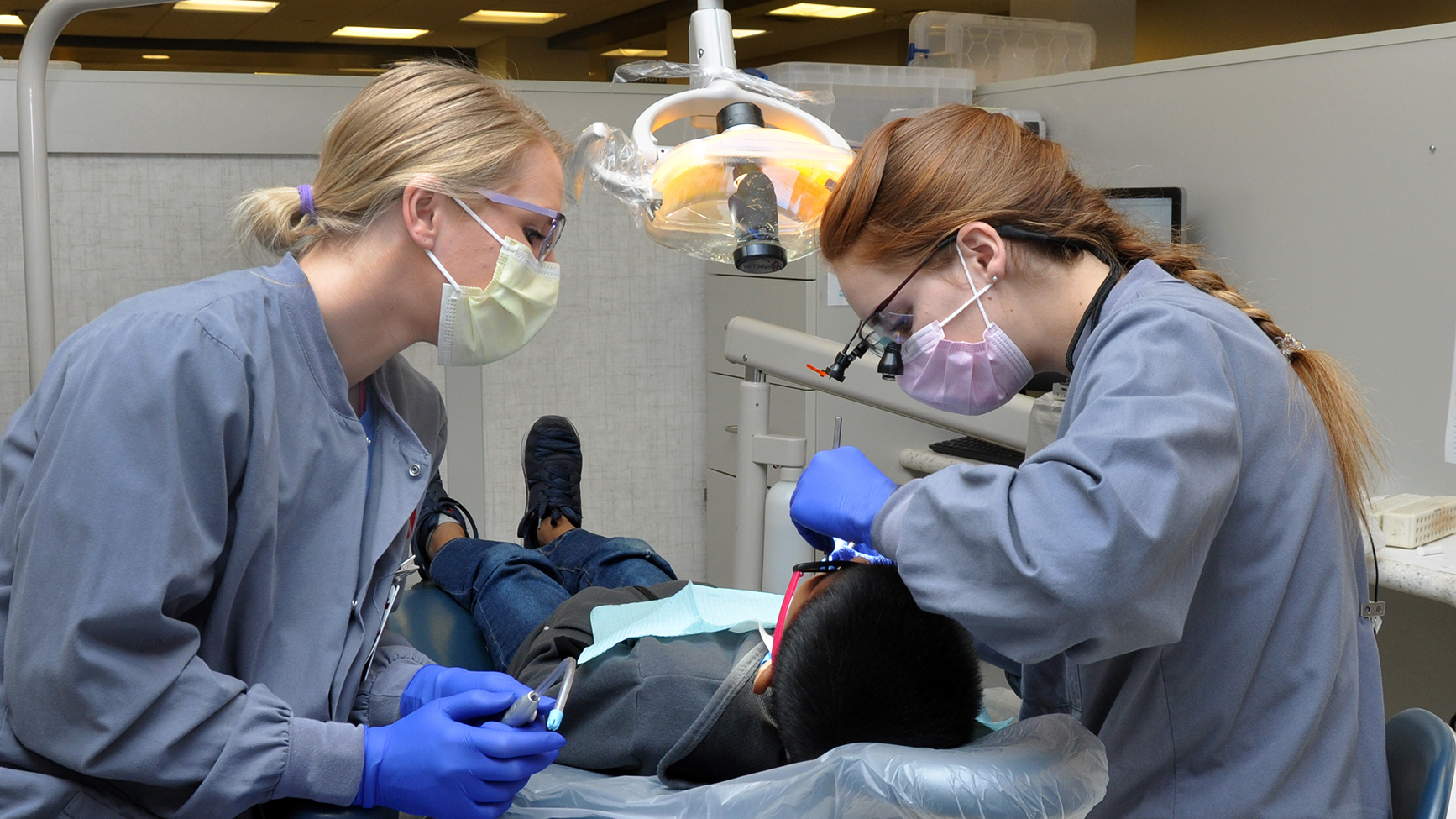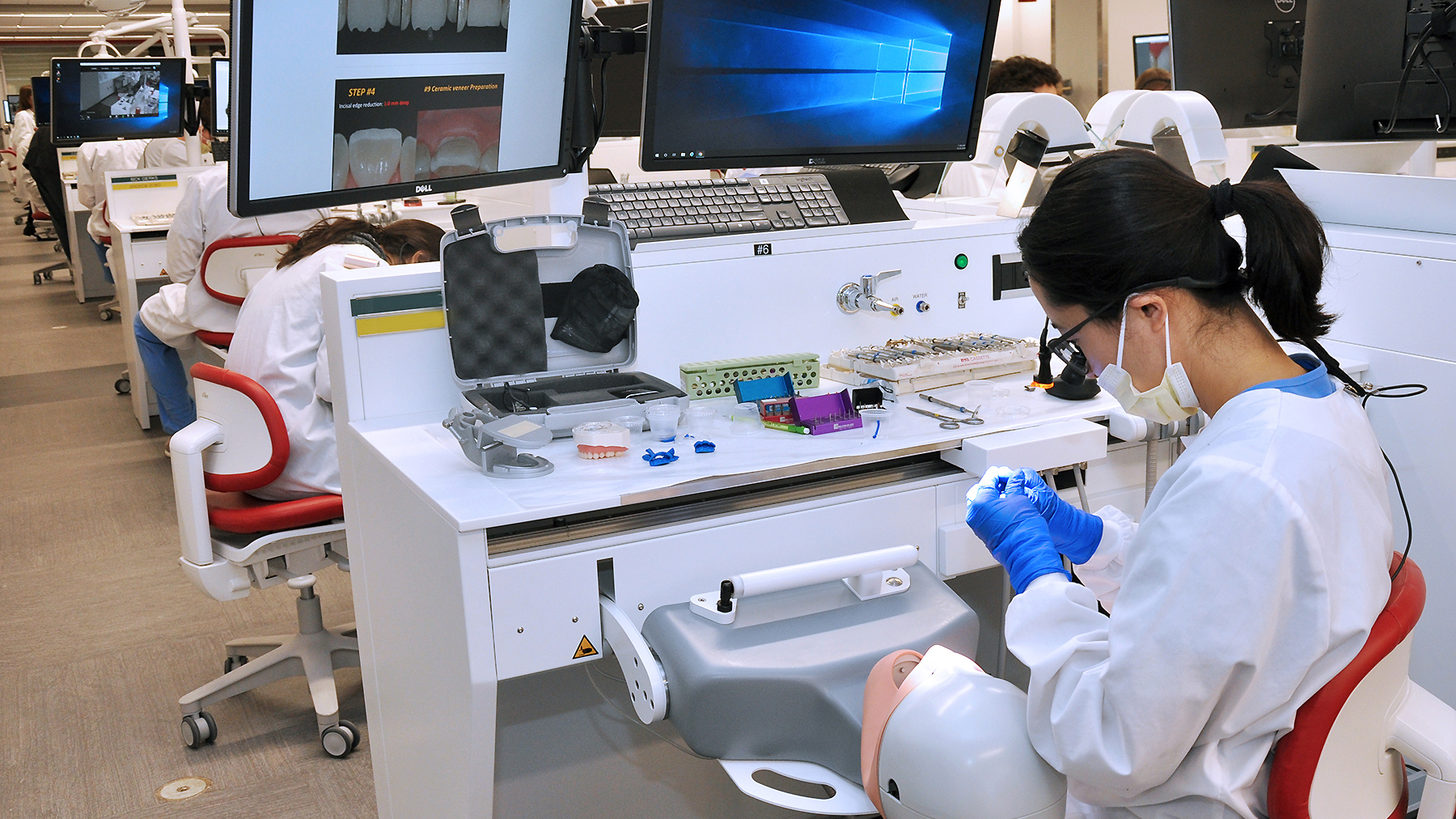
Program Snapshot
- About: The UNMC College of Dentistry has offered fully accredited advanced education programs in periodontology since 1962. The program leads to a Certificate of Specialization in Periodontics, fulfilling the requirements for eligibility to take the American Board of Periodontology Diplomate examination.
- Length of Program: 34-36 months
- Application Deadline: August 1
- Start Date: July 1
- Class Size: 2
- Department: Surgical Specialties
Location and Rotations
- Main Location: UNMC College of Dentistry, Lincoln
- Veterans Affairs, Lincoln
Why the UNMC College of Dentistry Peridontics Residency Program?
The top-tier program combines clinical, didactic and community outreach learning experiences. This hands-on approach enables residents to develop exceptional diagnostic, clinical and critical thinking skills. Residents receive outstanding education and training in diagnosing and treatment planning for various periodontal conditions.
The program is committed to providing a high standard of education and training for those pursuing careers in private practice and/or dental academia. Residents gain hands-on experience delivering high-quality diagnosis and treatment planning to patients in Nebraska and the Midwest.
The program is based at the UNMC College of Dentistry in Lincoln, where residents have the privilege of treating a diverse patient base. Additionally, residents rotate to the Veterans Affairs facility in Lincoln, where they provide care for those who have served our country.
Residents receive a stipend and benefits package. GME-eligible postgraduate students are eligible for a flexible benefits package, which includes options for health, life and disability insurance.
Student Story
"I chose UNMC because of the approachable and supportive faculty, as well as the VA rotation during the second year of residency. The best parts of the program are my co-residents and the great time we have each year at the American Academy of Periodontology conference." - Dr. Christine Alder, Lincoln
Program Highlights
- Intricately designed, hands-on residency experience.
- One-on-one learning experiences with world-class faculty.
- Supportive resident team.
- Diverse patient base.
- Learn more.
Our Team
- Matthew R. Byarlay, DDS, MS, Program Director
- J. Bruce Bavitz, DMD, Department Chair
 |
 |
Detailed Program Information |
Admissions Information |
Contacts
Matthew R. Byarlay, DDS, MS, Program Director | 402-472-1316 | mbyarlay@unmc.edu
Julie Buss, Admissions | 402-472-6261 | jbuss@unmc.edu

